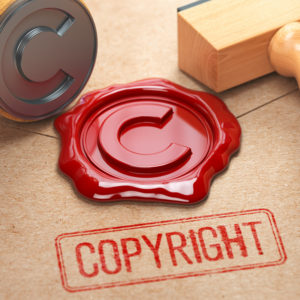The explosion of platforms to distribute digital content in recent years was expected to be a boon to creators.
That is certainly what Congress had in mind in 1998, when it passed the Digital Millennium Copyright Act. That law added Section 512 to the federal Copyright Act, a change intended to make it easier for copyright owners to protect their property and for online companies to operate without the threat of crushing litigation.
More than two decades later, the verdict is in. As a May report from the U.S. Copyright Office concluded, the balance Congress intended Section 512 to provide “has been tilted askew.” While the law has granted service providers ample protection from legal liability, it has done little to create the incentives needed to police digital piracy.
In light of the failure of U.S. copyright laws to both effectively police piracy and provide an efficient means for online companies to comply with the demands of copyright holders, Sens. Thom Tillis (R-N.C.) and Chris Coons (D-Del.) have held a series of hearings on potential reforms to the Copyright Act.
With the 117th Congress set to convene January 3, there are some clear areas that lawmakers need to address to create a healthier online ecosystem.
As it has been applied by the courts, the only tangible responsibility Section 512 places on online companies to police digital piracy is to respond to takedown notices from copyright holders. At that point, the damage has already been done. And for independent creators without their own content-protection departments, the hours and days they lose policing the internet for their copyrighted material is time they could be spending on their craft.
It would not be reasonable for service providers to be held culpable for every possible misuse of copyright material in the vast amount of user-generated content they carry. That would create massive risk of lawsuits, with ill effects for internet users and even for copyright holders who benefit from the legal distribution of their content.
But proper safe harbors should encourage online companies to help prevent copyright content from being improperly disseminated in the first place. For example, such rules could encourage online companies to license content upfront, which they can do more easily than copyright holders can with each of the service providers’ many users.
Further, as currently applied by the courts, Section 512 grants service providers safe harbor from liability so long they don’t have “actual knowledge” of copyright infringement. In essence, this ignores provisions in the law that also require online companies to take steps when they are “aware of facts or circumstances from which infringing activity is apparent.” The law should be revised to make clearer that online companies are required to act even if they have not been alerted by a copyright holder to a specific infringement.
Among the changes that would help us move in the direction of service providers having incentive to prevent copyright infringement and cease infringement that has already occurred would be rules requiring the providers to know their users’ true identities. Complete anonymity makes it trivially easy for a user to engage in piracy, knowing they can simply change their account name once they are caught.
Users also need to be better educated about the principles of copyright and fair use, something service providers could provide when users seek to make content available that could include someone else’s copyright work.
There are other more technical solutions that need to be explored. For example, Congress should consider requiring broader use of filtering technologies, like Google’s Content ID, that would allow copyright holders to prevent copyright content from being unlawfully uploaded or otherwise disseminated.
The U.S. Copyright Office should be authorized to create model forms that service providers could use to improve the takedown process. And it should develop model policies that more effectively terminate service for users who prove to be repeat offenders. The service providers themselves also should be encouraged to collaborate to develop standard technical measures to combat piracy.
Service providers could still be allowed to decline to implement these enhanced content-protection requirements. But in doing so, they would lose the safe harbors and be subject to the ordinary standards of copyright liability.
The providers might well find that a system that better protects the rights of creators leads to greater use of their services, and even greater profits.

